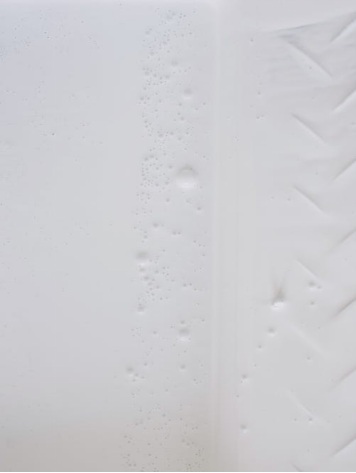Are your walls covered with discolored, wet patches that are ruining the entire appearance of your living room? We’ve been there! Research has shown that one in ten homes in America has plumbing leaks that can waste nearly 90 gallons of water in a day.
When any of your home’s pipes are damaged or leaking, they won’t make any evident noise, but you can bet that they’ll make their existence apparent. Here’s how you can tell there’s a water leak inside your walls.

Mold Growth
Whether it’s weak plumbing, corroded or bursting pipes, keeping an eye out for any plumbing issues can save you a lot of trouble.
When there’s a leakage in your walls, it can show in the form of brown or black colored mold growth on specific corners of your house, particularly on the walls.
Since mold always needs moisture to develop, you might find this in your bathroom, basement, or kitchen, where there’s a water source nearby.
Wet Spots
If your pipes are damaged in any way, you might see it in the form of wet patches on the drywall. Since concrete and stone can’t soak in water, you’ll soon notice water seeping through your wall.
But the leak may not necessarily be located right behind the sweating patch, as water can travel down and eventually come into contact with your wall.
Peeling Wallpaper or Paint
Even if you’ve gotten the most expensive whitewash done on your home’s interior, excessive moisture behind the walls will inevitably cause it to bubble or peel.
If you have wallpaper attached, look for any separation in the wallpaper, especially near the seams. Crumbling paint can also help you find a concealed water leak in your walls.

Distorting Walls
If your walls are curving and bending, it’s likely because the sheetrock behind them is soaked with water. Warping isn’t restricted to your walls; it can also affect your connected floors and ceilings by causing stains and bends.
Both these issues can lead to structural damage in extreme cases, which can cost you an arm and a leg in repairs.
Musty Smells
When excessive moisture is absorbed by your wooden walls, drywall, or sheetrock, it can give off a musty odor that’s easy to detect.
Wall cavities damaged by water are also susceptible to mold growth, which can emanate an overpowering smell of mildew.
If there’s a strong moldy odor near a specific area of the wall, there may be a water leak or mold growing somewhere near it.
Looking for a professional plumber in Fort Worth, TX? Serving the area for 15 years, Pro Serve Plumbing offers kitchen and bathroom repair, plumbing services, leak detection, and much more, with upfront pricing and 24/7 emergency services! Contact us for all your plumbing needs and get $50 off on your bill today!
